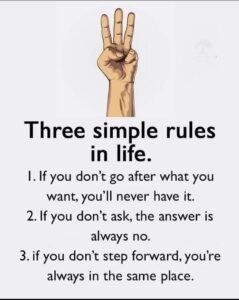Any man can seek revenge; it takes a king or prince to grant a pardon. Arthur J. Rehrat
When we are wronged or we perceive ourselves to have been wronged, our immediate reaction is one of anger and possibly we also harbor intentions of paying back in the same coins. When the urge to get even and if possible inflict punishment on those who wronged us becomes obsessive, we are actually actively contemplating revenge. Revenge in simple terms is an eye for an eye policy and we are all guilty of at least fleetingly entertaining the idea o revenge at some point in our life. That we may have rarely or never got our revenge could partly be attributed to us not having the courage for it or because with time our original hurt was healed.
With age and maturity all of us slowly realize the futility of extracting revenge but we fail to forget the hurt caused to us. In our psyche we do not really excuse the preparatory of the hurt and we make all attempts to possibly avoid, shun or ignore him or her. In effect what we are doing is neither forgetting nor forgiving the person who has hurt us. This attitude actually affects us more because we are constantly resurrecting unpleasant memoires, subtly carrying the hurt and pretending to be in a state of happiness and bliss. The most horrible part of this behavior is that we are in denial about our metal state, overburdened and stressed with the excess baggage of past memories and move around like the walking wounded.
If we had the character and temperament to be both rational and pragmatic we would not only forget the hurt but also forgive the culprit. Not very many can take a high moral ground and let bygones be bygones. One needs to develop the imposing and powerful personality of a King or prince if one has to really be both magnanimous and dignified and take that significant step of pardoning a person who we believe has hurt us. When one pardons we actually forgive the person and ideally we must also forget the hurt caused. Those who we accused of hurting us now stand exonerated of their crimes and we accept them our own with no remote threat of any form of retribution. This requires a large heart, the courage of conviction and the power over our emotions; qualities that are found only in people who have a kingly stature.
When we pardon another we actually set our mind free. Free from the burden of harboring negative emotions of revenge; free from the element of self doubt about our character and free from the possibility that we have a fragile temperament. We also elevate ourselves in our own eyes for we have acted with restrain, maintained our dignity and will have no regrets for our actions. More than anything else we have successfully put to rest any possibilities of misadventures in the form of revenge thus leaving us with a peace of mind that was disturbed from the day we were hurt or felt hurt.
Remember: “Be good, be kind, be humane, and charitable; love your fellows; console the afflicted; pardon those who have done you wrong.” Maxim Gorky
Try this:
- Make a list of people whom you find hard to forgive. If there are none then make a list of people who you dislike. For people on both lists write down 2 positive qualities that you can appreciate in them.
- Read the well know story from the Bible called The Prodigal Son and see the commentary at the end to see how message of the story is relevant to each one of us. http://christianity.about.com/od/biblestorysummaries/p/prodigalson.htm
This post is courtesy www.actspot.com
You are also invited to visit our WEEKLY Inspirational and Motivational Blog www.poweract.blogspot.com





